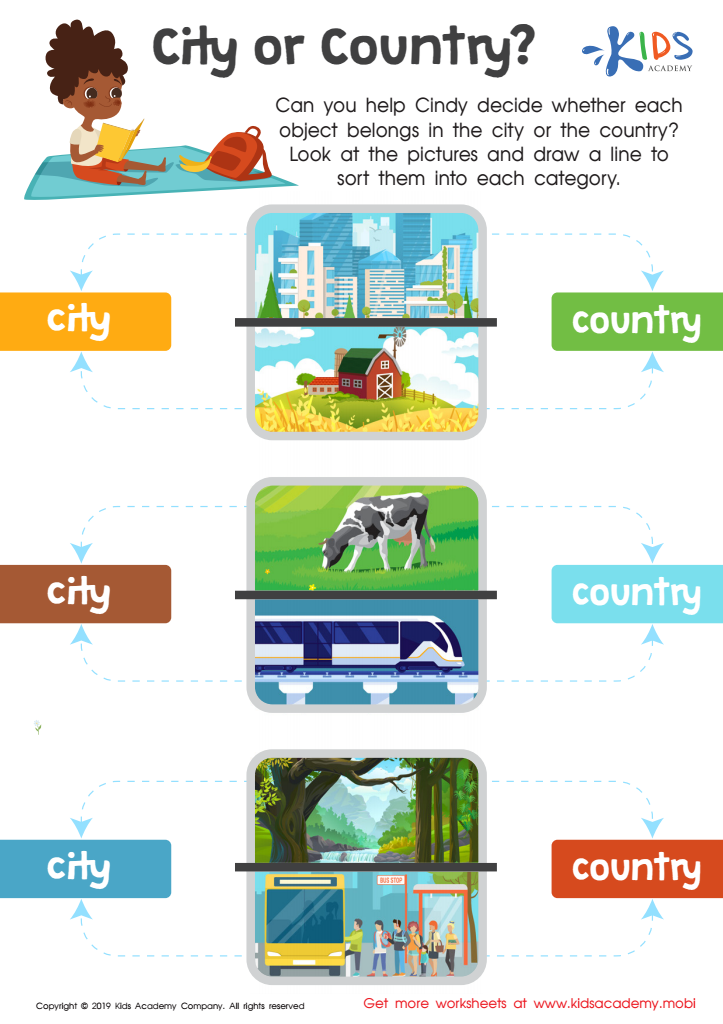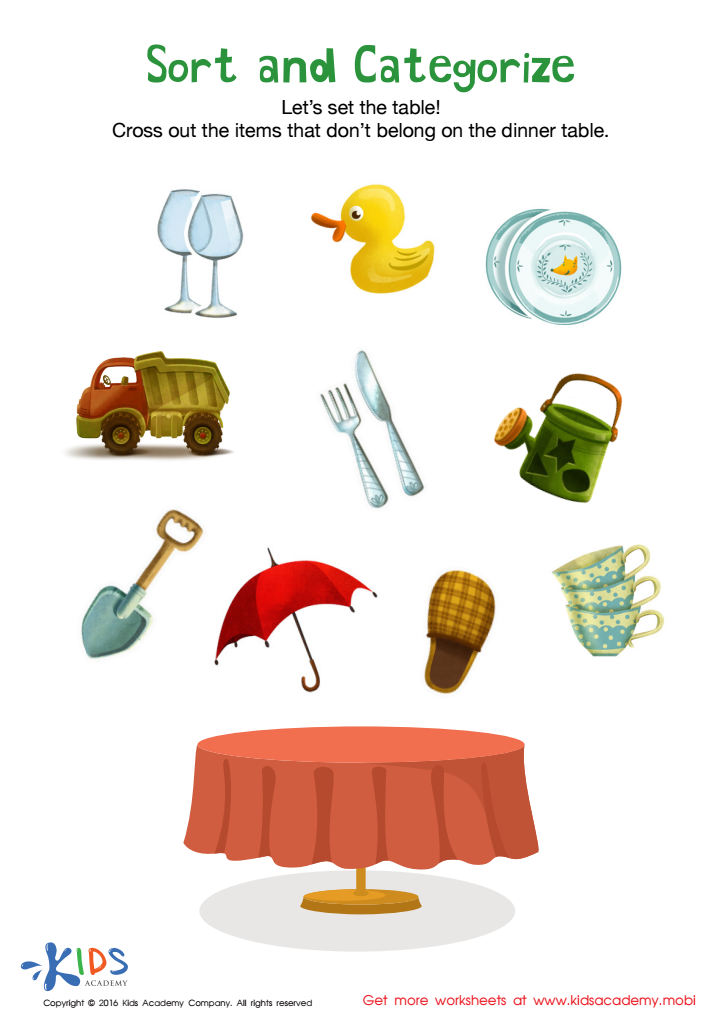Critical Thinking Sorting Worksheets for Ages 5-9
4 filtered results
-
From - To
Boost your child's analytical skills with our "Critical Thinking Sorting Worksheets for Ages 5-9." Designed to spark curiosity and enhance problem-solving abilities, these worksheets allow young learners to categorize objects, identify patterns, and make connections in a fun and engaging way. Accessible and expertly crafted, they provide age-appropriate challenges that enhance logical thinking and decision-making skills. Perfect for home or classroom use, our printable activities help kids build a solid foundation in critical thinking that aids academic success across subjects. Visit us to download and make learning a delightful adventure today!


Sorting Animals in 3 Groups Worksheet


City or Country? Worksheet


Make the Same Pattern Worksheet
Parents and teachers should prioritize Critical Thinking Sorting for children aged 5-9 because it lays a vital foundation for cognitive development and academic success. At this young age, children's brains are incredibly receptive to new information and learning strategies. Critical thinking sorting exercises, such as categorizing objects or problem-solving games, enhance a child's ability to analyze, compare, and make decisions—skills essential for both academic subjects and daily life.
Engaging in these activities helps improve their language, math, and science abilities by requiring them to sort objects by size, color, shape, or other attributes. This process fosters a deeper understanding of concepts like similarities and differences and aids memory retention. Furthermore, it encourages curiosity and questioning, leading to a more inquisitive mindset, which is crucial for lifelong learning.
In addition to intellectual growth, critical thinking sorting exercises also support social-emotional development. They help children develop patience, perseverance, and the ability to tackle complex tasks without becoming easily frustrated. These skills contribute to better conflict resolution and cooperative play with peers.
In summary, incorporating critical thinking sorting activities into a child’s routine provides a multifaceted developmental boost, fostering analytical skills, academic readiness, and emotional resilience. For parents and teachers, this translates to well-rounded children who are set up for long-term success.
 Assign to My Students
Assign to My Students

















